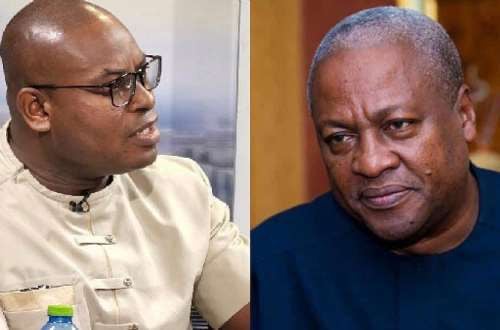Richard Ahiagbah, the National Communications Director of the opposition New Patriotic Party (NPP), has launched a scathing critique of President John Dramani Mahama’s decision to remove Chief Justice Gertrude Araba Esaaba Torkonoo, arguing that the action gravely undermines Ghana’s democratic foundations. Ahiagbah contends that the removal, orchestrated by the executive branch, effectively dismantles the crucial principle of separation of powers, a cornerstone of democratic governance that ensures the independence and balance of the judiciary, legislative, and executive branches. This erosion of judicial independence, Ahiagbah warns, sets a perilous precedent that could be exploited by future administrations for political gain, thereby jeopardizing the integrity of the entire democratic system.
Ahiagbah’s primary concern centers on the potential for the judiciary to become subservient to the executive, losing its ability to act as a check on government power. He argues that Mahama’s decision effectively subjugates the judiciary, rendering it powerless and vulnerable to political manipulation. This, he emphasizes, is not simply a matter of individual personalities or the specific circumstances surrounding Chief Justice Torkonoo’s removal, but rather a fundamental attack on the institution of the judiciary itself. The implications, he suggests, extend far beyond this single instance, potentially impacting the future of judicial independence and the rule of law in Ghana.
The core of Ahiagbah’s argument rests on the principle of separation of powers, a fundamental tenet of democratic governance designed to prevent the concentration of power in any single branch of government. He asserts that by removing the Chief Justice, the executive branch has overstepped its bounds and encroached upon the independence of the judiciary. This action, he contends, creates a dangerous precedent that could embolden future governments to interfere with the judiciary, eroding its ability to impartially interpret the law and protect the rights of citizens. The potential consequences, he suggests, are dire, potentially leading to a weakening of democratic institutions and the rule of law.
Ahiagbah further elaborates on the potential long-term ramifications of this action, warning that it could create a chilling effect on the judiciary, making judges hesitant to issue rulings that might displease the executive branch. This fear of reprisal, he argues, could undermine the impartiality of the courts and erode public trust in the judicial system. He emphasizes that a strong and independent judiciary is essential for upholding the rule of law and protecting the rights of all citizens, and that any action that weakens the judiciary ultimately weakens democracy itself. This weakening, he suggests, could have a cascading effect, impacting other democratic institutions and creating a climate of fear and uncertainty.
Furthermore, Ahiagbah challenges the justification for the removal of Chief Justice Torkonoo, suggesting that the invocation of Article 146 of the 1992 Constitution, which governs the removal of superior court judges, appears to be a pretext for political maneuvering. He argues that the true motive behind the removal is not based on legitimate grounds but rather on partisan political considerations. This politicization of the judiciary, he warns, further erodes public trust and undermines the integrity of the entire judicial process. The use of constitutional provisions for political ends, he argues, sets a dangerous precedent that could have far-reaching consequences for the future of Ghanaian democracy.
In essence, Ahiagbah’s critique paints a picture of a deliberate and calculated attack on the foundations of Ghana’s democracy. He portrays the removal of Chief Justice Torkonoo not as an isolated incident, but as part of a broader pattern of executive overreach and a disregard for the principle of separation of powers. He warns that this action sets a dangerous precedent that could have long-lasting and potentially irreversible consequences for the future of Ghanaian democracy, eroding the independence of the judiciary, undermining the rule of law, and ultimately jeopardizing the rights and freedoms of all citizens. He calls for a strong response to this perceived threat to democracy, urging all stakeholders to defend the independence of the judiciary and protect the integrity of Ghana’s democratic institutions.


